WBH Bi-Monthly Digest 2024-05-10: Wizard War

This Bi-Monthly Digest features two Kickstarters, a memory of Manly Wade Wellman, the way in which the foundation myth of the West is poisoned, and a thread on how fantasy approaches magic.

First up is JD Cowan's Star Wanderers. I've liked a lot of Cowan's work in the past, and I've backed this project myself.
Detective Ronan Renfield is a Galactic Enforcer sworn to protect the innocent and bring evil-doers to justice to maintain order throughout the stars.
The Agent is a nameless knight errant tasked with hunting the most brazenly wicked and blasphemous who threaten order and nature across the cosmos.
Alone, they face strange and diabolical horrors on backwater worlds and the corrupt and dangerous criminals who threaten civilization.
Together, they are the Star Wanderers!
This collection features eight thrilling tales of raygun adventure, swashbuckling sword fights, and cyberpunk mystery, including four never-before published adventures!
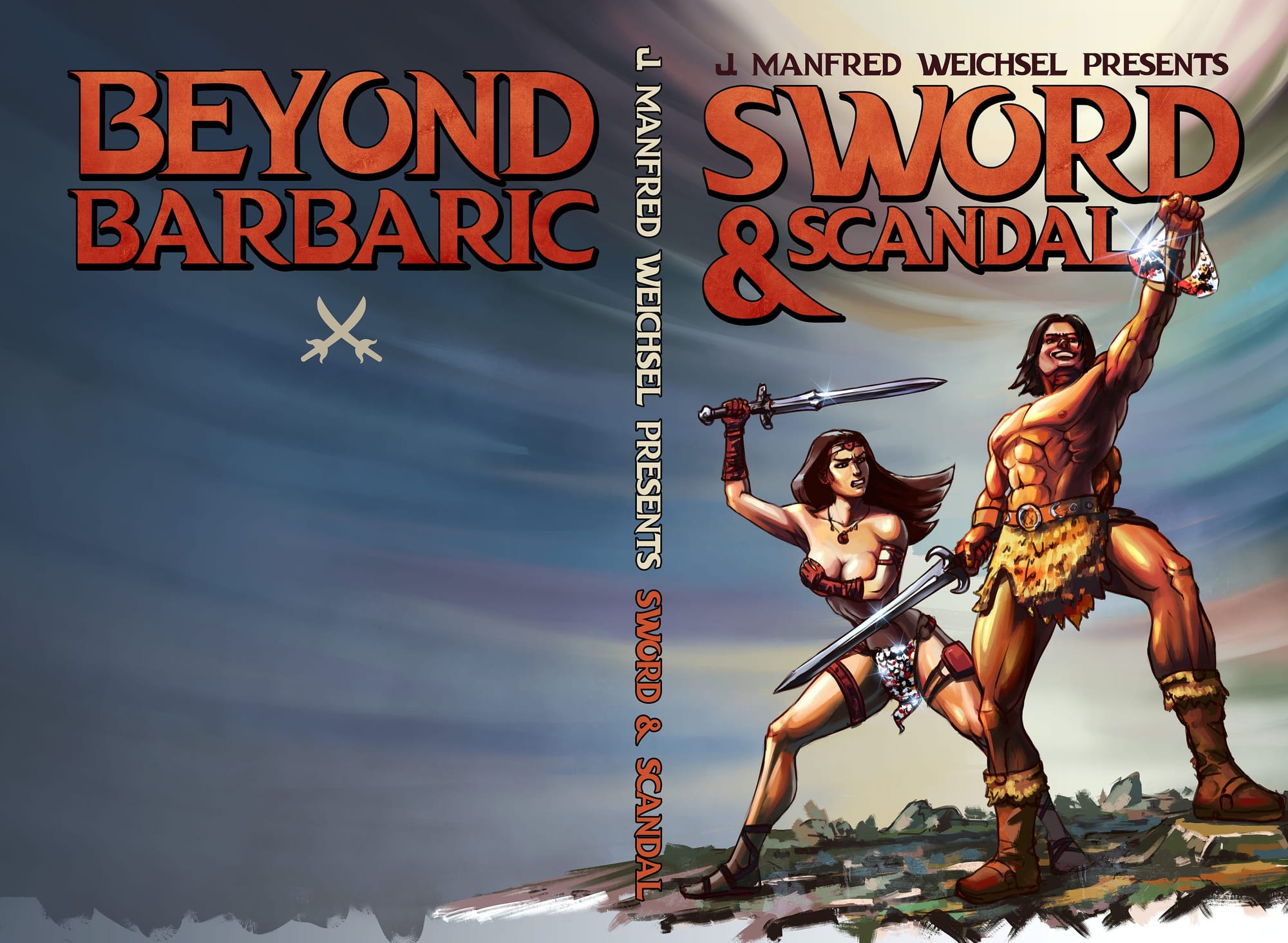
Next is Jon Weichsel's Sword and Scandal, this is a bit more of a risk than Cowan's Kickstarter, both in the sense that Weichsel goes for a spicier style, and also because the stories aren't written yet.
The title Sword & Scandal is a play on the popular Italian sword and sandal genre of epic films. These will be stories with traditional historical and mythological settings from heroic fantasy, but with more gore, nudity, and sex than what you usually see published. They will be subversive without becoming grimdark and will retain the sense of fun you would want from a pulp adventure, and the sense of wonder you would want from a weird tale.
If you have read my books, then you know that I am an experimental author who takes big risks with everything he does. Unlike other publishers who tend to play it safe with their selections, I will be looking for the wild, strange, and outrageous. I want to publish off-beat and off-the-wall stories that would never otherwise get to see the light of day.
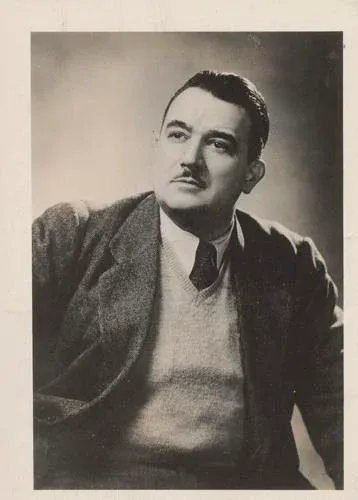
The Pilot: Manly Wade Wellman: Our Forgotten Man of Letters
On a September afternoon 53 years ago, I was one of eight creative writing students who had gathered for the first time in room 301 of the Carlton Building on the campus of little Elon College. We were awaiting the arrival of our instructor, an adjunct professor unknown to me. A fellow student who was repeating the course offered a concise appraisal: “This guy has published a truckload of books.” And at that moment an imposing figure appeared in the doorway.
Manly Wade Wellman was 6 feet tall, barrel-chested and wide-shouldered. He appeared to be in his mid-60s, with graying hair combed neatly back from his broad forehead. His face was round, open, accentuated with heavy eyebrows and a prominent nose below which was cultivated a tweedy Clark Gable mustache. I noticed immediately the peculiar way in which his eyes reflected light. The very tops of his irises flickered, suggesting an authentic inner illumination. He was dressed neatly in a frayed sports jacket that matched his mustache. A glasses case was stuffed in the pocket of his shirt, the collar of which was pulled tight by a bolo tie clasped with a silver and turquoise medallion.
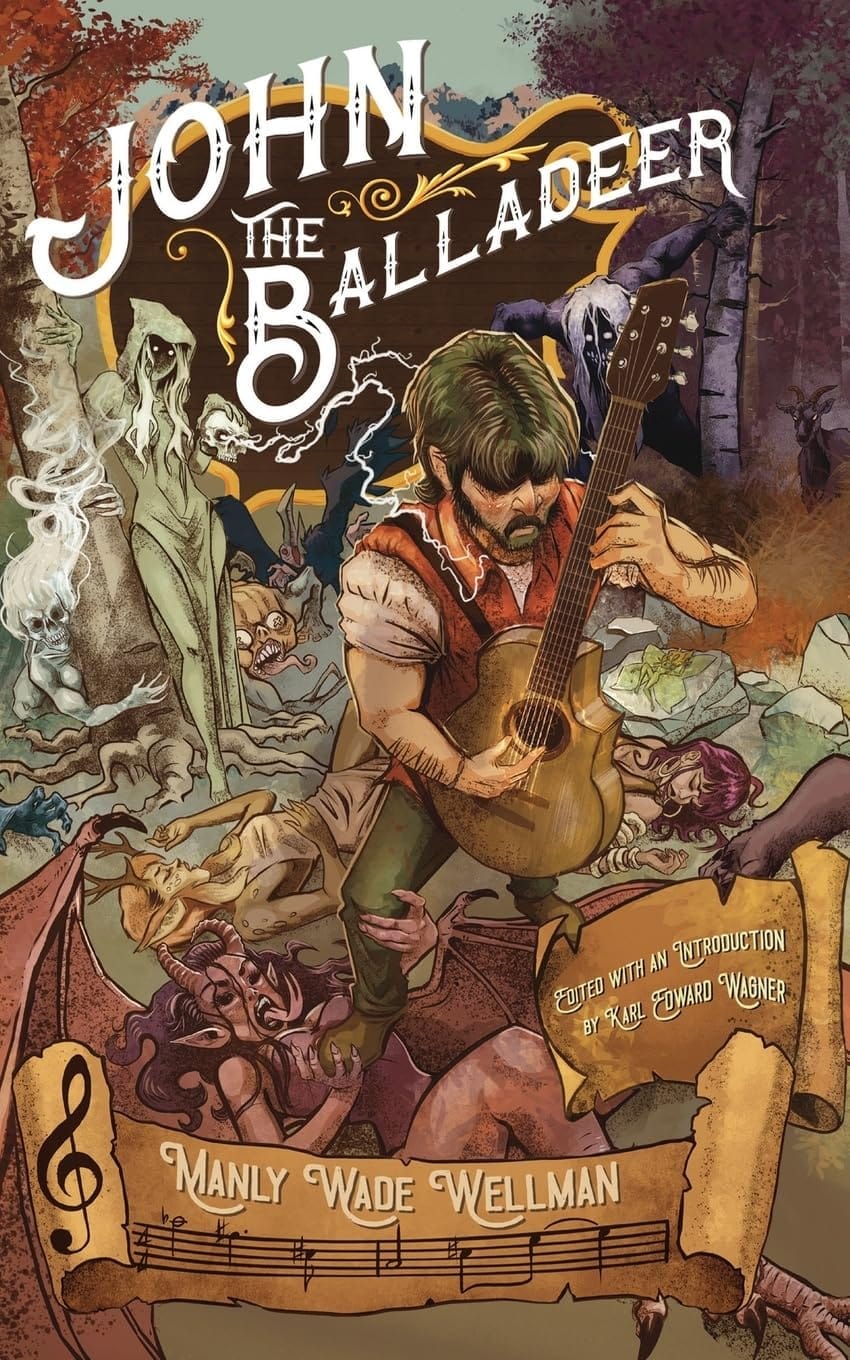
With Both Hands: John the Balladeer
Silver John, or John the Balladeer, is Manly Wade Wellman's Southern folk hero. John tramps the ridges and hollows of Appalachia, bringing song and the Gospel wherever he goes.
John is a poor and humble man. He places his trust in the Lord, and in the hospitality of the mountain folk, for food and shelter on his wanderings. In return, John protects the people from witches, devils, and haunts, which abound in the lonely and forgotten hollows.
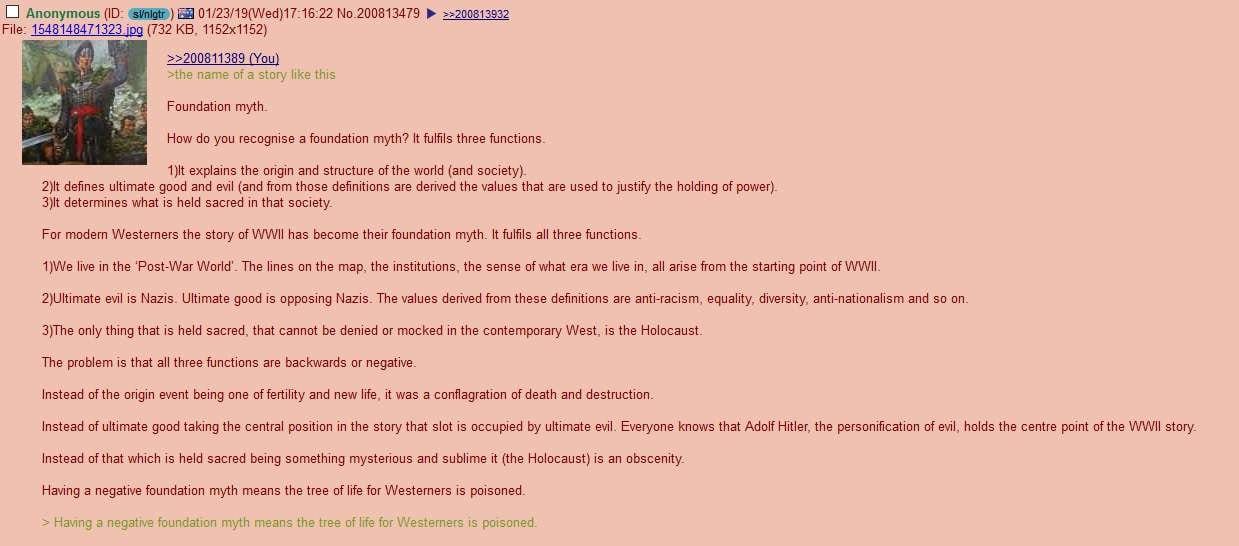
I've often made a rhetorical point about the war my grandfathers waged, but I think this goes to something deeper about how Western civilization poisoned itself by waging total war.
West Hunter: The Body Under the Rug
One of the pieces of the foundation myth that is broken is that Americans tend to see the retrospectively overwhelming victory over the Axis in WW2 and assume that American might won the day.
Our manufacturing capacity was top notch. Our soldiers were average, but numerous. But what people forget about is how the Wizard War made the war far more one-sided than it could have been.
The power of and deference to the intelligence agencies in the imperial capital is a holdover from this.
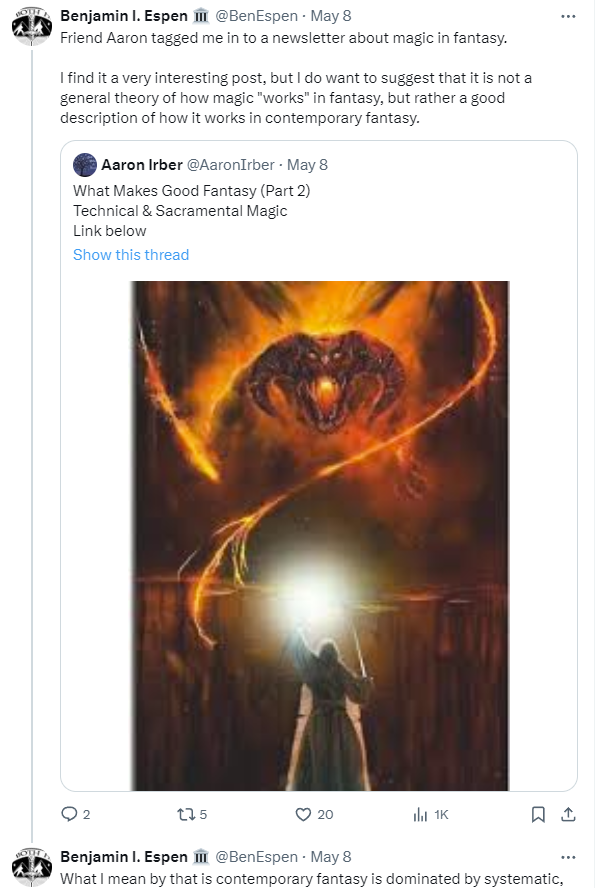
Over on Xwitter, I made an argument that contemporary fantasy tends to limit itself to systematized and gamified concepts of magic that then limits the kind of stories that can be told. If you want to know why contemporary fantasy often feels the same as ever other story, this partly is why.
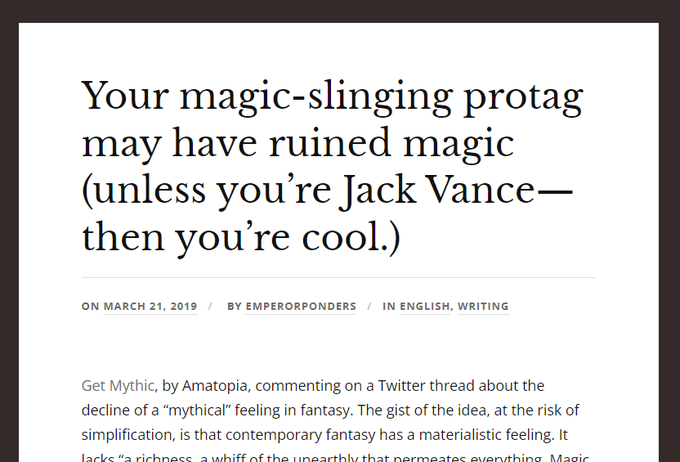
My views on magic in fantasy are in part inspired by this blog post from Emperor Norton on how magic-users were not often protagonists in fantasy stories until the twentieth century.
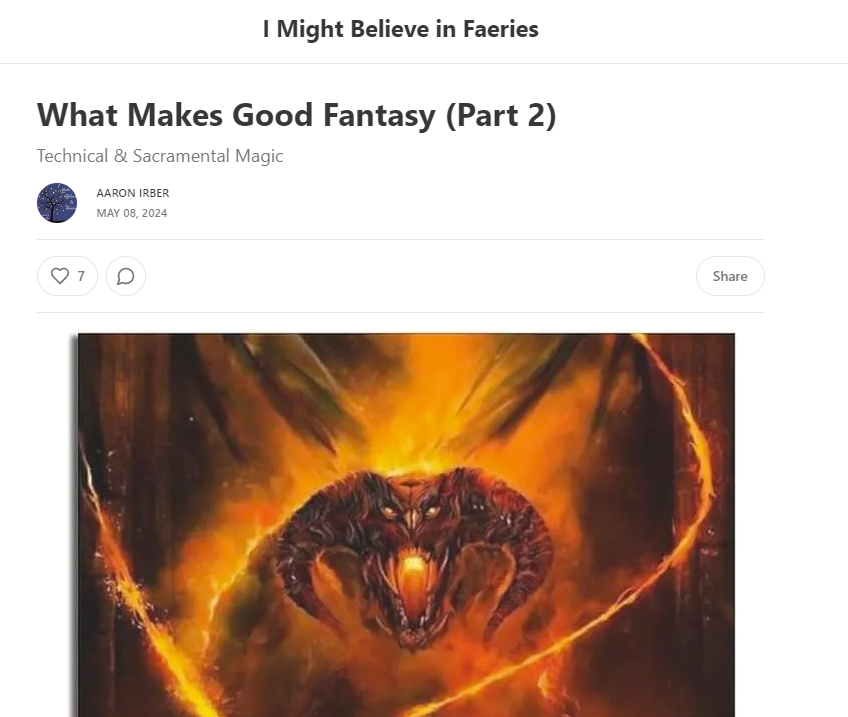
I Might Believe in Faeries: What Makes Good Fantasy (Part 2)
Aaron's thoughts on magic in fantasy stories.
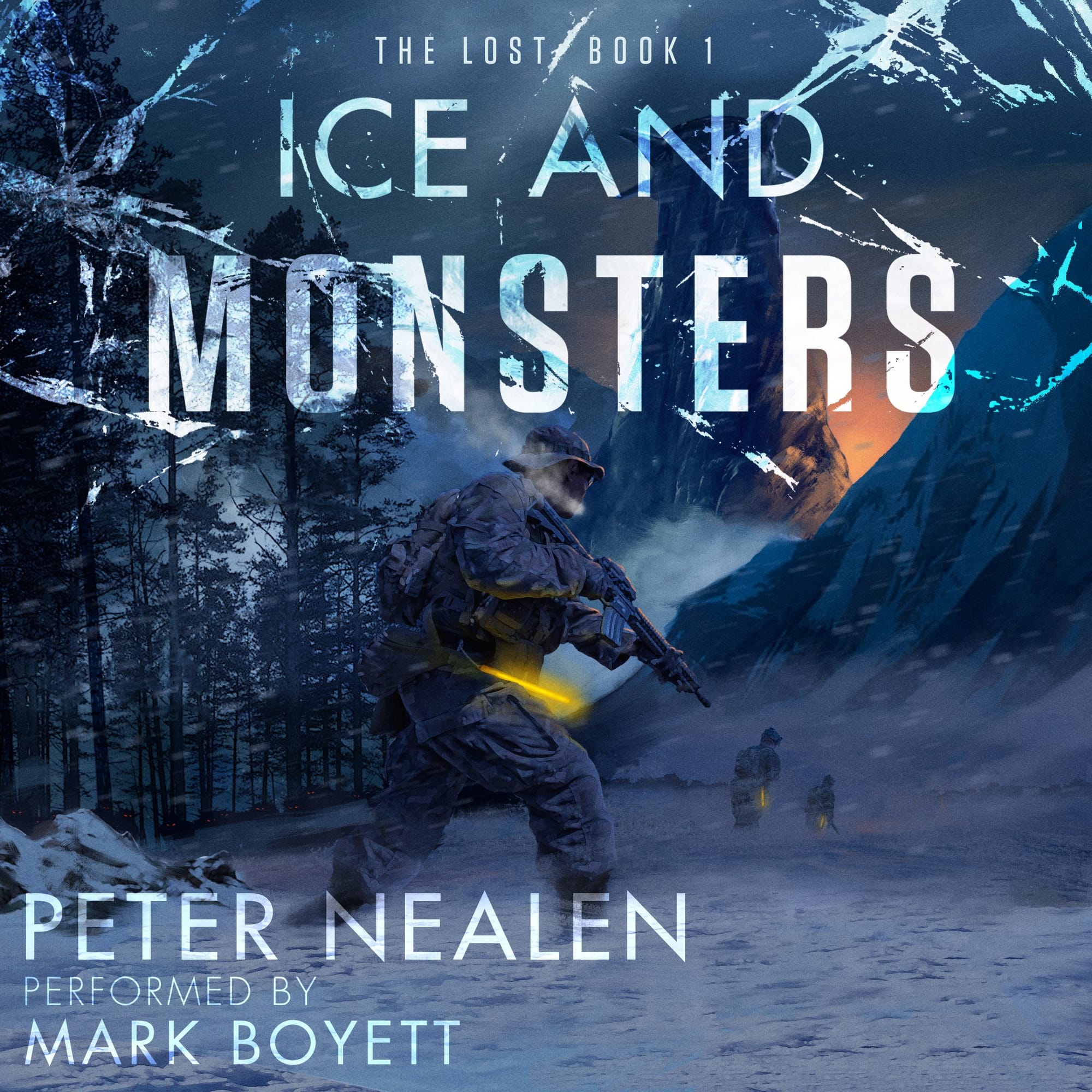
Peter Nealen's The Lost series published by WarGate Books is a good example of contemporary fantasy that doesn't lean in to gamified notions of magic. Magic is wild and dangerous, and entirely other than the workings of Providence in Nealen's story. I enjoyed all of these books.
If you want to check it out, the audiobook versions are a little cheaper direct from the WarGate Store.
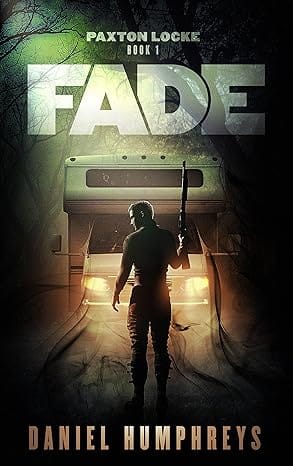
Which isn't to say I hate stories with gamified notions of magic. I have often felt that Daniel Humphreys' Paxton Locke series is an example of how you would do D&D 5th edition with gun-toting wizards. But you should notice that each author is pushed in certain directions by this.
The first book in the series is on sale on Amazon right now for $0.99, and the sixth book just came out in audio. Humphreys is currently working on a seventh book, with a cover reveal this week.
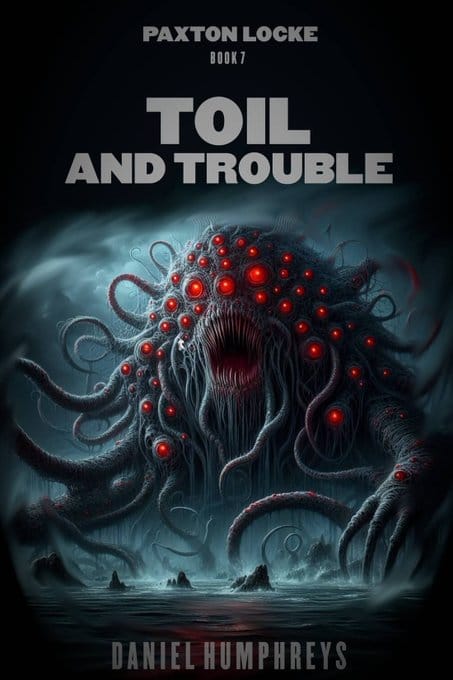



Comments ()